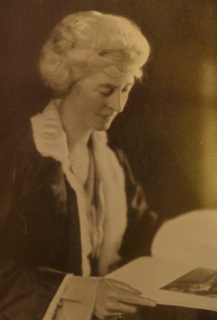A Quote by Jean Plaidy
It is the people who have no say in making wars who suffer from the consequences of them.
Related Quotes
The feminists are trying to tell women that there is really no difference between them and men. Just as men can be promiscuous, women can, too, and go for one night stands without consequences. But there are consequences. The women have the suffering of the abortion. They suffer more with the social diseases.
You could almost say that throughout human history there are people who can either foresee consequences or who are capable of looking for information and predicting the consequences will happen, but the vast majority of people won't respond to climate change until their city is underwater, food supply is disrupted or everyone around them is dying of zoonotic disease. It's almost like someone dealing with an addiction, like you hope that the person can overcome the addiction before the addiction kills them.
A God who chastises our lack of faith, our vices, the little esteem in which we hold dignity and the civic virtues. We tolerate vice, we make ourselves its accomplices, at times we applaud it, and it is just, very just that we suffer the consequences, that our children suffer them. It is the God of liberty ... who obliges us to love it, by making the yoke heavy for us - a God of mercy, of equity, who while He chastises us betters us and only grants prosperity to him who has merited it through his efforts. The school of suffering tempers, the arena of combat strengthens the soul.
If children have an interest in nature, they will understand. I want them to become people who appreciate the consequences the next generation will suffer if we destroy our natural surroundings. So without a doubt, they need to learn that nature is vital to us by experiencing it. I want them to like nature and to climb mountains and so on.
When people say there is a 'reason' for the depression, they insult the person who suffers, making it seem that those in agony are somehow at fault for not 'cheering up.' The fact is that those who suffer - and those who love them - are no more at fault for depression than a cancer patient is for a tumor.
I saw battle-corpses, myriads of them,
And the white skeletons of young men-I saw them;
I saw the debris and debris of all the dead soldiers of the war;
But I saw they were not as was thought;
They themselves were fully at rest-they suffer'd not;
The living remain'd and suffer'd-the mother suffer'd,
And the wife and the child, and the musing comrade suffer'd,
And the armies that remain'd suffer'd.


































